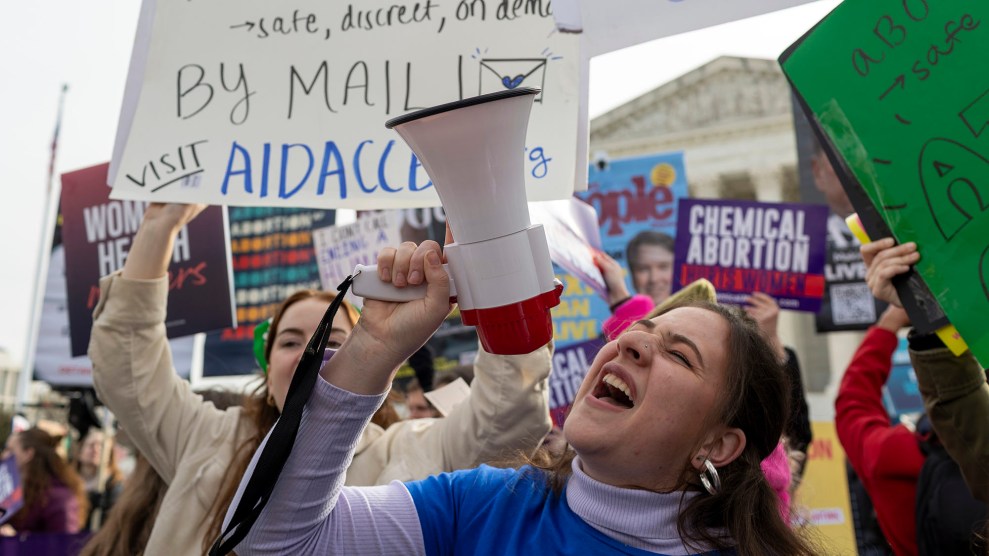
Image: AP/Wide World Photos
One morning last November, a small jet owned by casino mogul Steve Wynn lifted off from Washington, D.C., bound for Las Vegas and carrying a trio of Senate GOP leaders: Majority Leader Trent Lott (R-Miss.), Mitch McConnell (R-Ky.), and Bill Frist (R-Tenn.). That evening they gathered for cocktails at Wynn’s Shadow Creek Country Club, listening to him brag about all the jobs being created by the gambling industry.
But Wynn, who runs Mirage Resorts, did much more than just talk at the gathering: He had brought together a group of about three dozen gambling executives whose companies gave $100,000 to the GOP over the weekend. And, in the months that followed, the gaming industry poured $1.2 million into GOP coffers. Wynn headed the pack with a well-timed $250,000 contribution from Mirage in March: It arrived just days after the introduction of a measure that would have ended tax deductions for gambling losses. Leaving nothing to chance, the industry lobbied Lott and McConnell, who pressed the bill’s sponsor, Sen. Dan Coats (R-Ind.), to pull the measure.
Tight relationships with prominent Senate leaders have made Wynn the gambling industry’s most powerful political player. And Mirage has certainly led the charge, donating nearly $1 million since 1991, including contributions from Wynn, company executives, their spouses, and the company’s PAC, according to the Center for Responsive Politics. He often gives through Mirage, and so he stays off lists such as the Mother Jones 400. (Others, such as Sheldon Adelson [No. 74], Stanley Fulton [No. 108], and Arthur M. Goldberg [No. 168] aren’t as wise.)
Well known for his flashy style, perennial tan, and sleek coiffure, the 56-year-old Wynn demonstrates his political shrewdness by covering his bets with Democrats, too. In June, Mirage dropped a $200,000 check in the mail to the Democratic Party — just days after Sen. Robert Torricelli (D-N.J.), a longtime industry ally and an acquaintance of Wynn’s, was quoted in the National Journal questioning why so much money was going to the GOP, given growing criticism of gambling from prominent conservative Republicans such as Gary Bauer and presidential candidate Sen. John Ashcroft.
Such care and feeding of political leaders has paid off well: In 1996, when Congress and the Clinton administration created a National Gambling Impact Study Commission to probe the social and economic effects of gambling, Congress granted the commission only limited subpoena powers, and placed a number of strong industry allies on it. Still, the commission’s final report is due next June, and casino interests are nervous about how critical it will be and whether it will lead to calls for federal regulation.
That sets the stakes high for the gambling industry — and, in particular, Wynn. Anyone wondering why Wynn would want friends covering his bets need only read about his latest and greatest venture: the $1.6 billion Bellagio, a lavish Las Vegas casino that houses an art collection worth a reported $300 million, with paintings by Gauguin, Van Gogh, and Monet, some of which he reportedly hopes to sell for a tidy profit.















